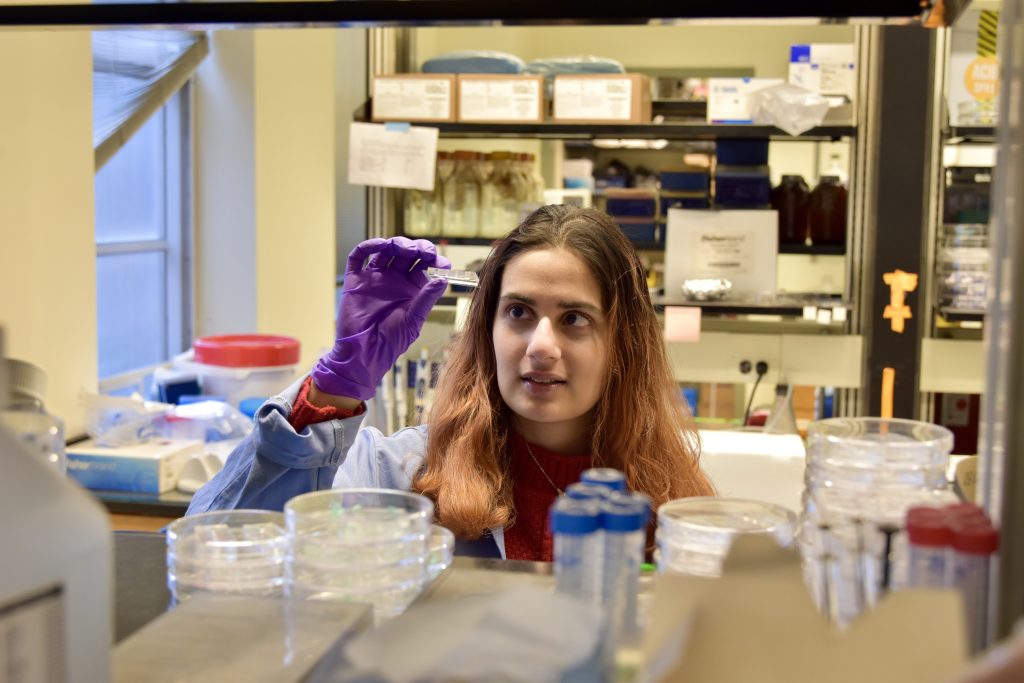@JHUMaterials senior Ikshu Pandey is developing/optimizing a model to study blood-brain barrier dysfunction in Alzheimer’s, building knowledge of the mechanisms underlying disease progression, which will be essential to finding a cure. She shares her results Wed at #DesignDay24
Alzheimer’s Disease (AD) impacts about 6.5 million people in the US, yet remains incurable. Understanding the underlying mechanisms of AD propagation prior to symptomatic presentation is necessary to develop pathway-specific treatments. Blood-brain-barrier (BBB) dysfunction is identified as a precursor to AD, since this often occurs prior to the presentation of clinical symptoms in AD patients. This project hypothesizes that BBB dysfunction due to intrinsic cues contributes to disease progression. The specific focus is on AD-associated PSEN1 M146V and APPswe familial mutations. Confocal microscopy and integrated density quantification revealed up- and down-regulation of junctional, transport, and Alzheimer’s biomarkers, showing barrier dysfunction. Cell turnover and transport testing showed increased cell death and amyloid transport in AD models, respectively. These findings guide further research towards a cure by increasing understanding of the mechanisms behind the propagation of AD prior to its clinical presentation, at which point it is too late to treat.
Read more in the Design Project Gallery.
Student: Ikshu Pandey
Faculty Mentor: Orla Wilson



